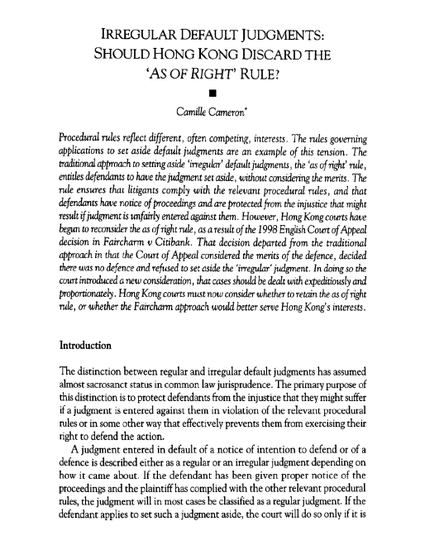
- Procedural Rules,
- Default Judgements,
- As of Right Rule,
- Hong Kong Courts,
- Faircharm v Citibank,
- Legal Approaches
Procedural rules reflect different, often competing, interests. The rules governing applications to set aside default judgments are an example of this tension. The traditional approach to setting aside 'irregular' default judgments, the 'as of right' rule, entitles defendants to have the judgment set aside, without considering the merits. The rule ensures that litigants comply with the relevant procedural rules, and that defendants have notice of proceedings and are protected from the injustice that might result if judgment is unfairly entered against them. However, Hong Kong courts have begun to reconsider the as of right rule, as a result of the 1998 English Court of Appeal decision in Faircharm v Citibank. That decision departed from the traditional approach in that the Court of Appeal considered the merits of the defence, decided there was no defence and refused to set aside the 'irregular' judgment. In doing so the court introduced a new consideration, that cases should be dealt with expeditiously and proportionately. Hong Kong courts must now consider whether to retain the as of right rule, or whether the Faircharm approach would better serve Hong Kong's interests.
